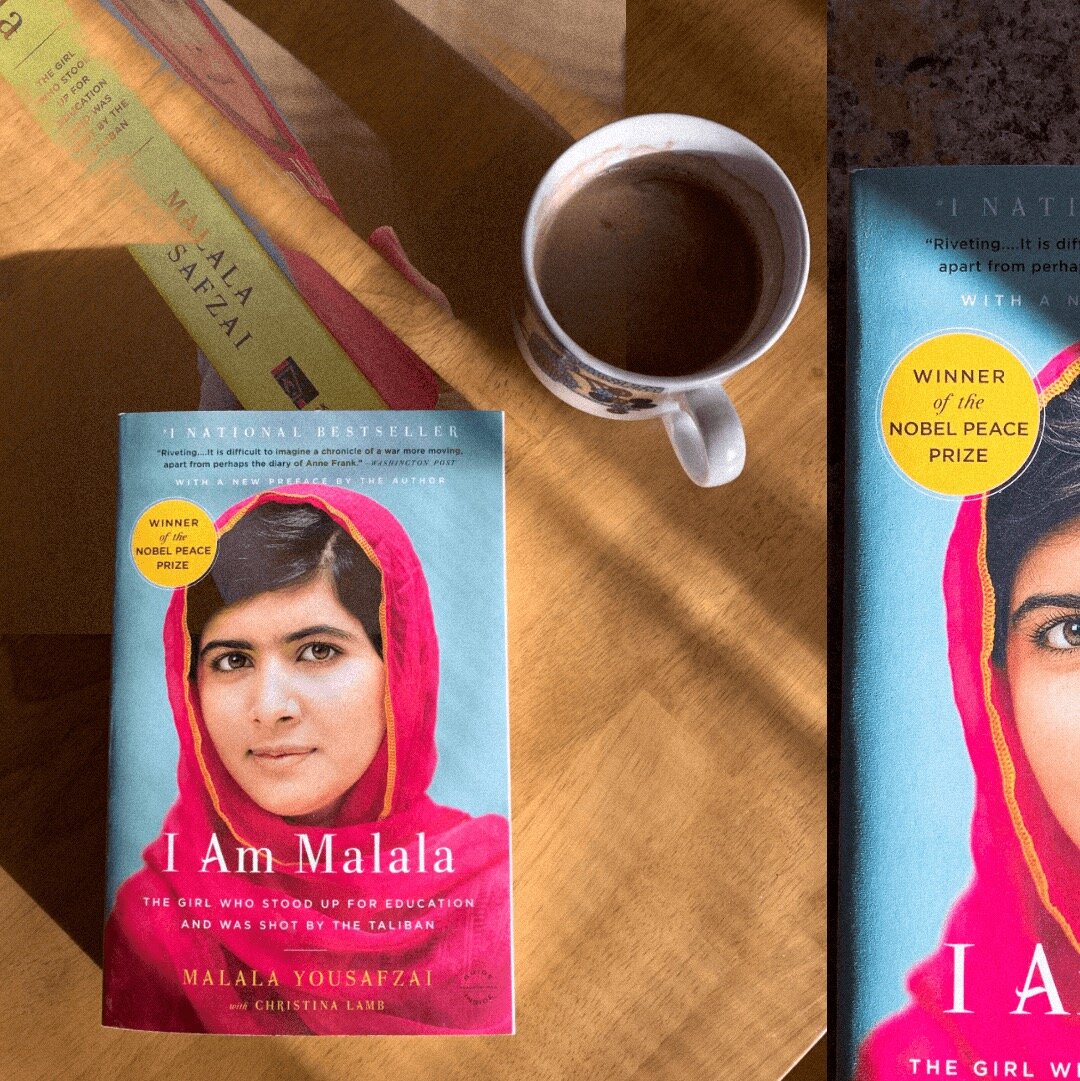“I Am Malala” by Malala Yousafzai
The voice that will not be silenced.
I honestly didn’t know how to start this review. Where could I start… by describing who she is? By relating the horror that she and her family went through? By praising her admirable courage? It's hard to focus only on the book when there is so much more to Malala.
Being only 23 and having influenced the world as she has done is not an easy feat. Neither it is having been awarded the Nobel Peace Prize at 17 - thus becoming the youngest person to receive this award. Inspired by her father, she started advocating for girls' right to an education since she was very young. She started blogging for the BBC when she was only 11, and shortly after she and her father became known throughout Pakistan as strong advocates for girls' education.
What happened to her in October 2012 made headlines worldwide - she was shot in the head by the Taliban while riding the school bus on her way home. Published one year after the attack, in her book Malala takes us through the different stages of her life leading up to that moment, and what happened afterwards, including her incredible recovery and her famous speech at the United Nations on her 16th birthday. We get to know about her early years, her strong bond with her family, the values and beliefs of the Pashtun culture, and the way her life changed when the Taliban took control of her homeland, the Swat Valley.
This is a book about the courage of a young girl and how her father inspired and supported her to make a difference in the world. Since she was little, her father was determined to give her the opportunities that in their culture only boys could have, such as education. Her strong bond with him, the support they gave one another and their shared passion for education kept their activism growing and getting stronger, even after both of them had received death threats.
"I Am Malala" is a book in which you wish that parts of the story were not true. School bombings, suicide bombers, and assassinations of high profile figures and people close to her, all became part of Malala's daily life. In addition to forbidding girls to attend school, everyday activities like watching television and playing music were also banned by the Taliban. This is the world that she lived in and what she stood against, for which she almost lost her life when she was only 15.
If I had to choose a word to describe this book, I would pick: eye-opening. I really learned a lot from reading it. I'd heard about Malala but reading her story gave me a more detailed perspective of her culture, her values, what she fought for, and what life under the Taliban rule was like for her. Yes, it is a book about the attack on her life, but it is also a memoir that provides the reader with detailed context of her life before and after the Taliban and where her unwavering fight for girls' right to education came from.
Brave and inspiring, Malala is a voice that won't be silenced. I will for sure keep on listening.

